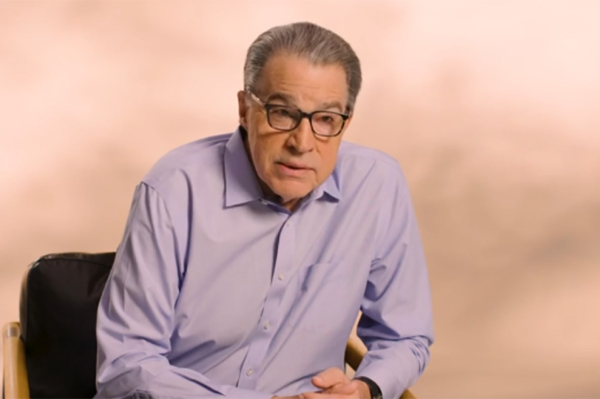The Politically Incorrect Rev. Dr. King
Surely the 50th anniversary of the "I Have a Dream" speech of Rev. Dr. Martin Luther King, Jr. is a major milestone in our history.
But in our highly secular age, the politically correct Dr. Martin Luther King, Jr. has been yanked from his biblical context---deeply rooted in the Judeo-Christian tradition. That doesn't mean he wasn't a flawed man. No one but Jesus is without sin.
In the "I Have a Dream" speech, King quotes the Bible (Isaiah 40:4-5) and a Christian hymn ("My Country 'Tis of Thee"---presumably as in God).
In the speech, the Baptist minister famously said, "I have a dream that my four little children will one day live in a nation where they will not be judged by the color of their skin but by the content of their character." As the Bible says, from one man God made all men (Acts 17:26).
Throughout the civil rights movement, Dr. King told his followers to draw help from God. "We must meet hate with creative love....Let us hope there will be no more violence. But if the streets must flow with blood let it flow with our blood in the spirit of Jesus Christ on the cross."
Jesus was the driving force behind his non-violence. King said, "Nonviolence is not a symbol of weakness or cowardice, but as Jesus demonstrated, nonviolent resistance transforms weakness into strength and breeds courage in the face of danger." (Gandhi too had influence on him, but Gandhi himself admits that his nonviolence strategy came from Jesus' Sermon on the Mount.)
Rev. King said, "Religion endows us with the conviction that we are not alone in this vast, uncertain universe."
In April 1963 (four months before the "I Have a Dream" speech), Dr. King said, "I would agree with Saint Augustine that 'An unjust law is no law at all.'....A just law is a man-made code that squares with the moral law of the law of God. An unjust law is a code that is out of harmony with the moral law....
And he added later, "...law and order exist for the purpose of establishing justice..."
In 1962, King asked his followers, "Must we, by concluding that segregation is within the will of God, resign ourselves to the will of God, resign ourselves to oppression? Of course not, for this blasphemously attributes to God that which is of the devil."
King even addressed the common notion that you can't legislate morality. He said, "Even though morality cannot be legislated, behavior can be regulated. While the law cannot change the heart, it can certainly restrain the heartless."
That reminds me of a common remark of my longtime pastor, Dr. D. James Kennedy: All legislation reflects someone's morality. The question is, whose morality will prevail?
Dr. King also said, "The chief purpose for the Christian Church is the salvation of individuals."
King's niece is Dr. Alveda King, who is a strong pro-life advocate and serves Priests for Life.
She laments that her uncle's dream can never be fulfilled with such rampant abortion rates. I've interviewed her a few times. She told me, "Statistics today prove that African-American women and their babies, and their wombs are the most targeted wombs and families in America."
She notes that even to this day "a majority of the abortion clinics are in urban areas, near highly populated African American communities; so we have more abortions, with us being about 13 percent of the population and having roughly one-third of the abortions."
Alveda added, "Dr. Martin Luther King, Jr. said the Negro cannot win if he's willing to sacrifice the future of his children for immediate personal comfort and safety." And her uncle, she said, also warned "us not to be like the Romans who committed infanticide."
Alveda herself notes: "It's unjust to kill a little person because they're little. A woman has a right to choose what she does with her body, but where is a lawyer for the baby? How can the dream survive, if we murder the children?"
What about homosexuality? A lot of gay rights advocates imply that their movement is the next logical extension of Dr. King's movement.
Rev. Bill Owens disagrees. He's the founder and president of the Coalition of African American Pastors. He once told me, "I marched with Dr. King. I marched for civil rights....And they're trying to hijack and take over the civil rights movement and make it their movement. And they didn't pay the price, nor do they suffer the things that blacks suffered..."
Similarly, black pastor, Dr. Ken Hutcherson, notes: "I'm appalled at that comparison....I remember two water fountains in my day. This is me growing up. This isn't something I heard about; this is something I lived---where there [were] colored water fountains, white water fountains. I have never seen a homosexual water fountain, have you?"
In his last sermon (Atlanta, February 1968), Rev. Dr. Martin Luther King, Jr. said, "If I can help somebody as I pass along. If I can cheer somebody with a well [sung] song, if I can show somebody he's traveling wrong, then my living will not be in vain. If I can do my duty as a Christian ought. If I can bring salvation to a world once wrought. If I can spread the message as the master taught, then my living will not be in vain."
His living was surely not in vain.





















